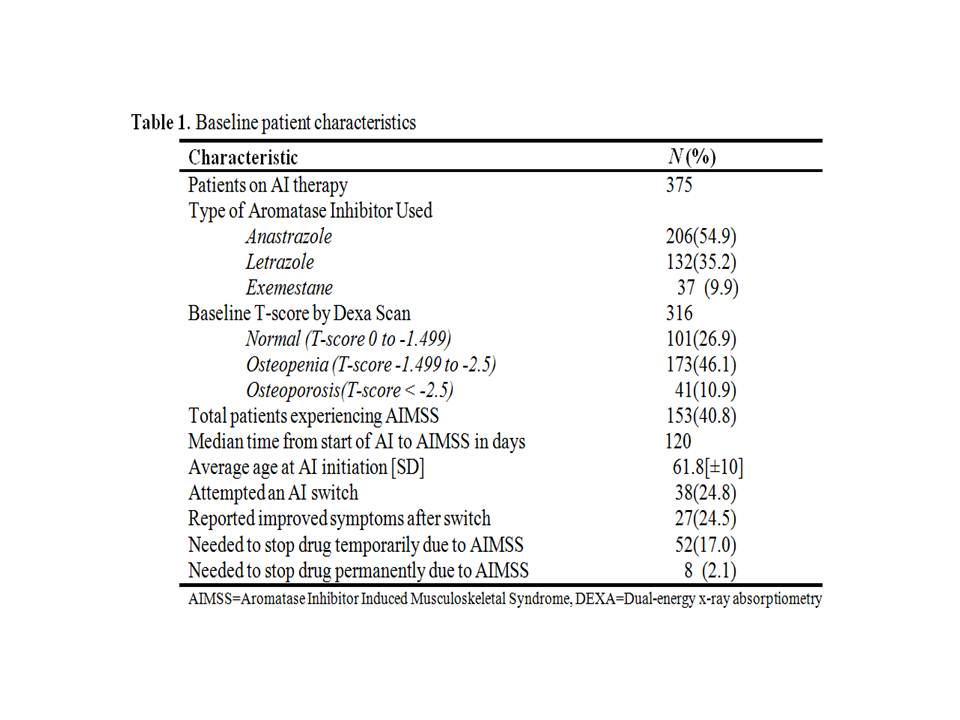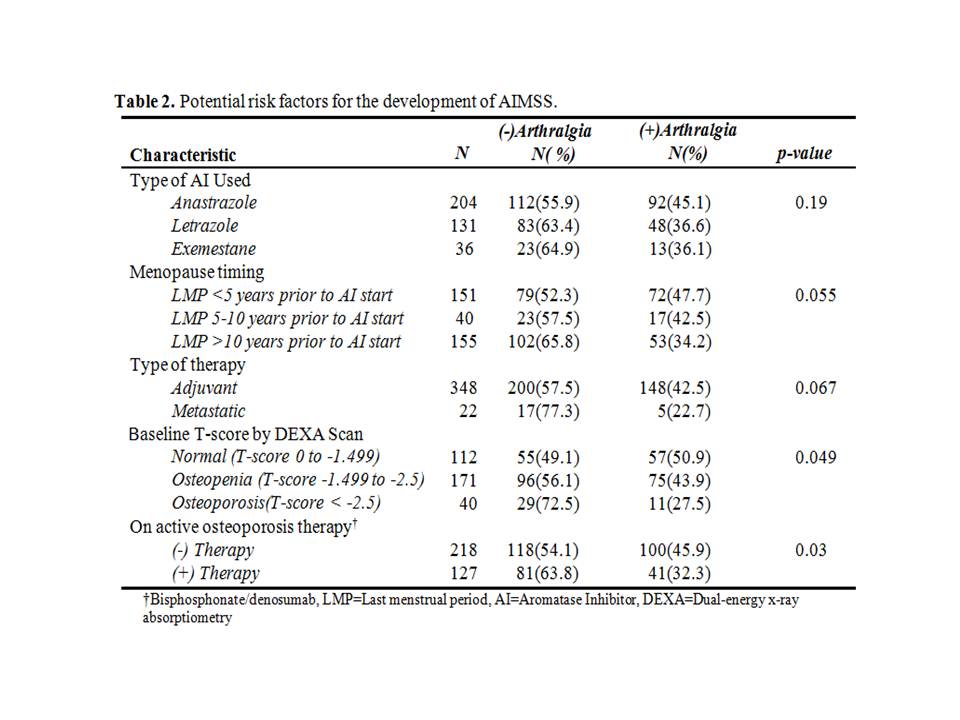Session Information
Session Type: Abstract Submissions (ACR)
Background/Purpose: Aromatase Inhibitor (AI) therapy is the most effective hormonal treatment in post-menopausal estrogen receptor (ER) positive breast cancer. These patients may be seen by rheumatologists due to the side effects of arthralgias, termed aromatase inhibitor induced musculoskeletal syndrome (AIMSS), which limit their use in some patients. We evaluated factors associated with AIMSS and explored possible therapeutic options in a large cohort of patients.
Methods: We performed an IRB-approved retrospective review of breast cancer patients seen in the Norris Cotton Cancer Center clinics from April 2011 to January 2013. 378 patients were included in our chart review on the basis of taking an AI for breast cancer with follow up documented in the electronic health record. Statistical analysis was performed by chi squared test for dichotomous variables and students t-test for continuous variables.
Results: In our cohort 91% of patients were taking an AI as adjuvant therapy (9% for metastatic disease) with 41% (n=153) reporting new or worsening arthralgias after initiation of an AI. AIMSS was 42.5%(95%CI: 0.375 to 0.478) in the adjuvant and 22.7%(95%CI: 0.101 to 0.434) in the metastatic groups. The median time to symptom onset was 120 days. 2.1% (n=8) discontinued AI therapy due to AIMSS. There was no association with prior chemotherapy, baseline arthralgia, BMI, or statin use. We found an apparent increased risk of developing AIMSS with more recent menopause (p=0.055), and therapy in the adjuvant setting (p=0.067). We also note a potential association with baseline osteoporosis and osteoporosis therapies with lower rates of AIMSS (p<0.05; Table 2). Management options included temporary discontinuation of AI, switching between AI, and non-steroidal anti-inflammatory therapy (NSAIDs). Nearly all had improvement with temporary discontinuation, 24.5% improved after AI switch, and 84% had symptomatic benefit on NSAIDs.
Conclusion: The incidence of AIMSS in our review was 41%. Patients treated for metastatic disease may have a lower rate of AIMSS. Our cohort revealed that more recent menopause did seem to be a risk factor. Baseline osteoporosis and osteoporosis treatments have a potential association to be explored. Management options included switching between AIs, temporary discontinuation, and NSAID treatment. Updated analysis will be presented.
Disclosure:
Z. Kulcsar,
None;
C. Morgan,
None;
P. Kaufman,
Pfizer Inc,
5;
J. Jones,
None;
W. Rigby,
None.
« Back to 2014 ACR/ARHP Annual Meeting
ACR Meeting Abstracts - https://acrabstracts.org/abstract/the-aromatase-inhibitor-induced-musculoskeletal-syndrome-is-there-a-potential-role-of-osteoporosis-therapy-and-menopause-timing/


